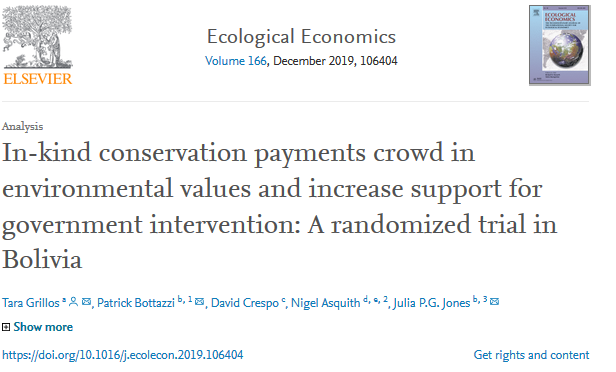
There is growing use of economic incentives such as Payments for Ecosystem Services (PES) to encourage sustainable land management. An important critique is that such approaches may unintentionally disrupt environmental and social values, ‘crowding out’ pre-existing motivations to conserve. Some scholars suggest that the use of in-kind payments and norm-based framing, rather than financial transfers and a market framing, can mitigate these risks. There are calls to use more robust methods for impact evaluation in environmental policy. We use one of the only Randomized Controlled Trials of a conservation incentive scheme to evaluate its impact on self-stated environmental and social values and beliefs. Data from before and after the intervention, from households in villages randomly selected to receive the program or not, demonstrate that the program increased prioritization of environmental values (evidence of crowding-in as opposed to crowding out) and altered social beliefs related to inequality and the role of government. The findings demonstrate that this conservation program had a positive impact on environmental values and increased the belief that government involvement is appropriate. The scheme, with its use of in-kind payments and reciprocity framing, offers lessons to those seeking to develop effective schemes to incentivize positive environmental stewardship.

Click here to see options of full text access
![]()

Leave a Reply
You must be logged in to post a comment.